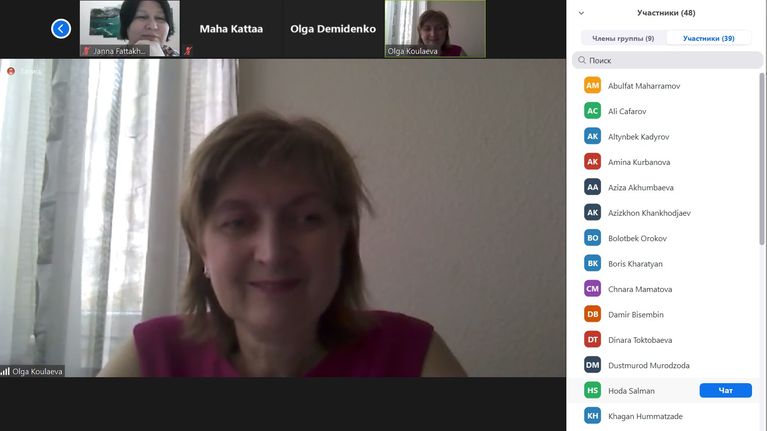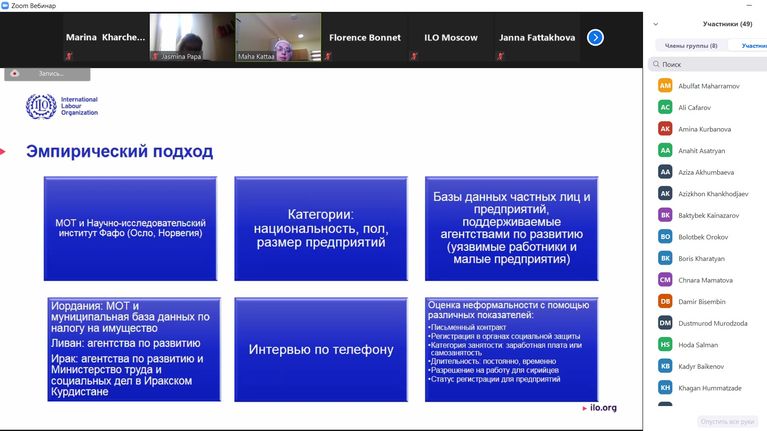Rapid Assessment of the Impact of COVID-19 on Workers in the Informal Economy
On 16 June 2020 the ILO DWT/CO Moscow held a Subregional Webinar “Rapid Assessment of the Impact of COVID-19 on Workers in the Informal Economy”. This was the third webinar in a series of webinars devoted to social protection response to COVID-19 pandemic in the ECIS sub-region.

ILO estimates that due to the impact of COVID-19 pandemic, and without any alternative income sources, lost labour income will result in increase of relative poverty among informal workers and their families of more than 21 percentage points in upper-middle-income countries, almost 52 points in high-income countries and 56 points in lower- and low-income countries.
In order to implement comprehensive and sustainable approaches to address the situation, governments, social partners, informal economy units and other entities design initiatives supporting workers in the informal economy.
Ms. Florence Bonnet, Labour Market and Informality Specialist, INWORK, ILO Geneva presented a generic guide to Rapid assessment of the impact of COVID -19 on workers in the informal economy.
Informal economy workers and units are highly impacted by COVID pandemic. Globally, 1.6 billion informal workers (76%) are severely impacted by COVID-19 and the introduction of necessary measures to ensure physical distancing. 61% of affected workers are in Eastern Europe and their proportion reaches 90% in Central and Western Asia.

Ms Kattaa described Immediate financial support measures that help to support, maintain or restore workers’ and their family income and/or facilitate employment retention, protection, formalization and governance, such as Cash Assistance, Active Labour Market Programmes, Enhancing Labour Governance, protection and working conditions. She emphasized that these measures can lead to longer-term solutions such as setting up of unemployment fund.
Ms. Janna Fattakhova, National Consultant from Uzbekistan presented Rapid survey of the situation of informal and workers in micro-small and medium enterprises in Uzbekistan, describing how the survey was implemented during the lockdown and how the results will be used for response design.
Ms. Nino Veltauri from State Employment Agency of Georgia described the approach used for self- identification of workers in informal economy eligible for unemployment assistance and registration in Georgia.
The Rapid assessment of the impact of COVID-19 on enterprises and workers in the informal economy offers guidance to identify workers in the informal economy and give them voice, highlight sectors and groups most affected by the crisis, identify the direct and indirect effects of the pandemic. It also helps to adopt preventive measures on selected sectors, sub-sectors or activities in the informal economy, methodological approaches to rapid assessment.
The final webinar in the social protection series will be devoted to the review of policy responses in the sub-region.